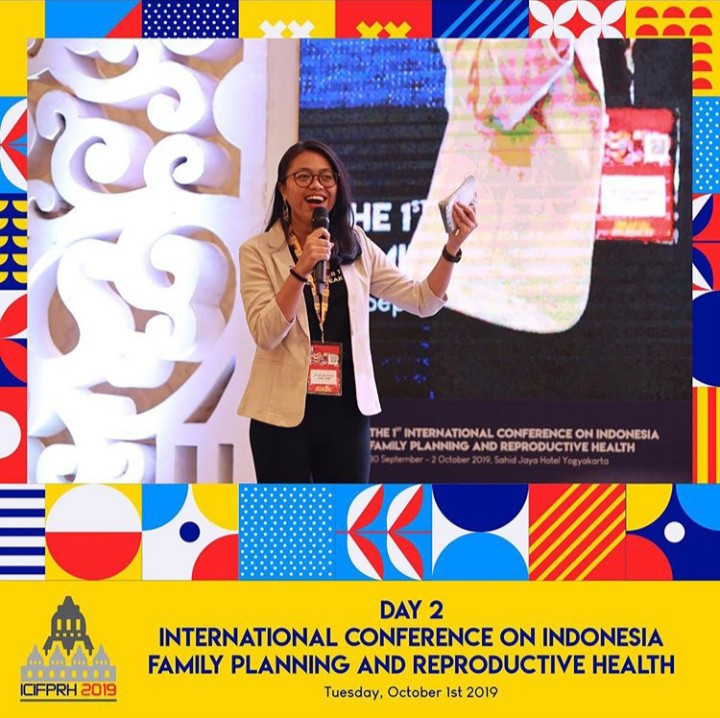Popular Reads
Top Results
Can't find what you're looking for?
View all search resultsPopular Reads
Top Results
Can't find what you're looking for?
View all search resultsGet up & speak out: Young people give voice to youth SRHR rights
Who better to advocate for youth sexual and reproductive health and rights than young people? This is the rationale behind the "Get Up, Speak Out for Youth Rights!" (GUSO), an international program that involves youth at all stages and levels.
Change text size
Gift Premium Articles
to Anyone
Ni Luh Eka Purni Astiti was once a shy girl.
“I used to feel inferior when working with adults because of my lack of knowledge and experience,” recalled Eka, a public health graduate of Udayana University in Bali.
Today, Eka is a woman and very different from her younger self. She is now an eloquent youth activist, working on the front lines of youth sexual and reproductive health and rights (SRHR) advocacy in Indonesia through the “Get Up, Speak Out for Youth Rights!” (GUSO) program.
“I gained my self-confidence when I joined the Get Up, Speak Out program and was appointed the youth country coordinator of the GUSO program in 2018,” she said.
Komang Sutrisna, chair of Aliansi Satu Visi (One Vision Alliance; ASV), a vast network of 20 civil society organizations in Indonesia, said the majority of adolescents in the country still had little to no access to accurate information on, and services for, sexual and reproductive health and rights.
Citing Health Ministry data from 2012, Komang said that 33.3 percent of girls and 34.5 boys below age 15 had already started dating. The data also revealed that 2.5 percent of girls and 19.1 percent of boys were sexually active.
“This data showed the wide information gap among adolescents on SRHR knowledge that resulted in so many problems during this tumultuous time,” he said.
Komang added thatyoung people often did not claim their sexual rights or their right to participation because of community, societal, institutional and political restrictions.
These restrictions hindered their access to comprehensive SRHR education and services that matched their needs and empowered them in making informed decisions. Consequently, young people were vulnerable to sexually transmitted diseases (STDs) like HIV, sexual and gender-based violence, as well as unintended teenage pregnancies that led to unsafe abortions.
The GUSO program addressed the urgent need for young people to obtain accurate SRHR information so they could fulfill their potential during adulthood, Komang stressed.
“This program also allows young people, including marginalized and vulnerable [youths], to engage in meaningful and active participation, to express their aspirations, to control their own lives and to exercise their sexual and reproductive health and rights,” he said.
GUSO has four desired outcomes: a strong and sustainable alliance, empowering young people to claim their rights, increased availability of youth-friendly SHRH information, education and services, and improved sociocultural, political and legal environments.
The GUSO program is the brainchild of Rutgers, the SRHR expert center in the Netherlands, and is run in seven countries in Asia and Africa.
In Indonesia, the programis run by Rutgers WPF Indonesia and Aliansi Satu Visi (ASV) in Jakarta, Lampung, Central Java, Bali and East Nusa Tenggara through six member organizations: Ardhanary Institute, Indonesian Planned Parenthood Association (IPPA) DKI Jakarta, IPPA Lampung, IPPA Central Java, IPPA Bali, Pelita Ilmu Foundation, and Women’s Human Rights Institute (IHAP).
“The needs and wishes of young people, especially girls and young women, are central in GUSO. They will receive information and services at [the] best moment for them, the best place and the best way that is suitable for them,” said Bonitha Mariana, who chairs the GUSO Indonesia steering committee.
“Young people are involved at all levels, from the setup of the program to the decision-making. Parents, caretakers, teachers and community leaders are also involved,” she added.
Fita Rizki Utami of ASV elaborated further that the majority of the program’s officers and managers were young people, and therefore, they were addaressing issues that were relevant to them.
GUSO, which will end in 2020, is the continuation of a previous program called Access, Services and Knowledge (ASK) that ASV ran from 2012 to 2015. Like other donor-funded programs, many had raised concerns about its sustainability.
“Since the very beginning, GUSO has involved young people in decision-making. Therefore, I strongly believe this program will sustain beyond the ending period,” said Bonitha.
She also stressed that GUSO did not establish a new youth organization or forum. “We collaborate with existing youth and community organizations that have strong grassroots bases,” she said.
In East Nusa Tenggara (NTT) province, for instance, GUSO is run by the Institute for Women’s Human Rights (IHAP) in collaboration with Teman Belajar Remaja Kupang (Learning Friends of Kupang Youth; TeBe RK), Catholic and Protestant leaders, the Catholic Youth Association, youth churches and a large variety of youth organizations. The collaboration also involves schools, law enforcement, lawmakers, provincial and regional administrations, academia and other stakeholders.
The program currently provides Comprehensive Sexual Education (CSE) to more than 180,000 adolescents and SRH services to more than 100,000 youths in Sumatra, Java, Bali and NTT. It also supports more than 200 youth-led collaborations and reaches out to millions of Indonesian youths through a myriad of creative and attractive campaigns.
“By joining the GUSO program, I feel so empowered and it has really had a positive impact on the way I view my fellow youth, and adults as well. I know that young people can work well with adults if they are given the chance to participate fully in the decision-making process,” said Eka.










